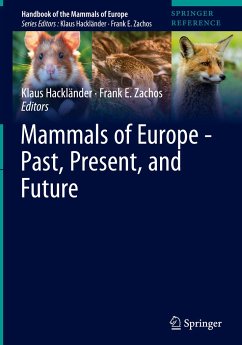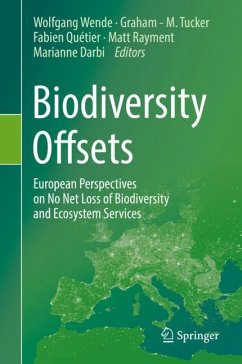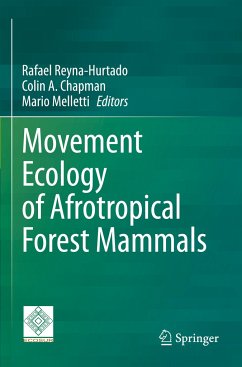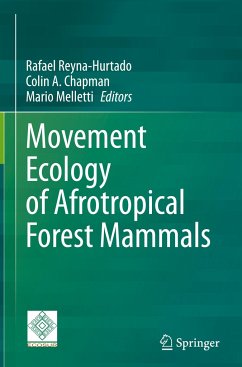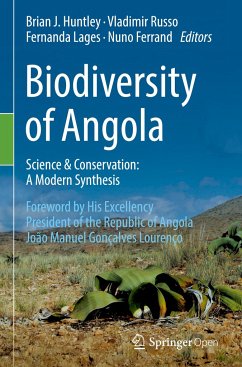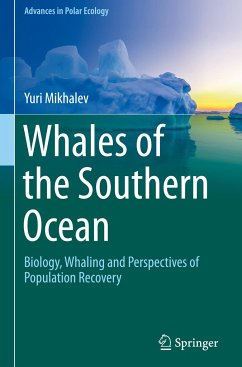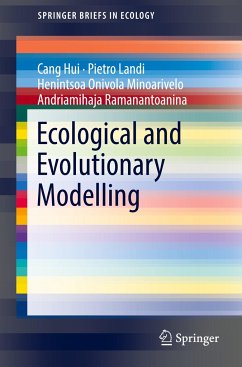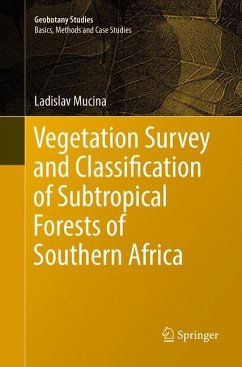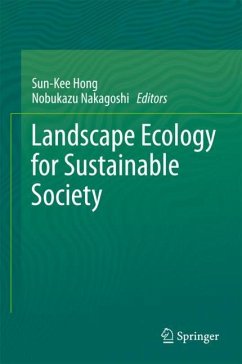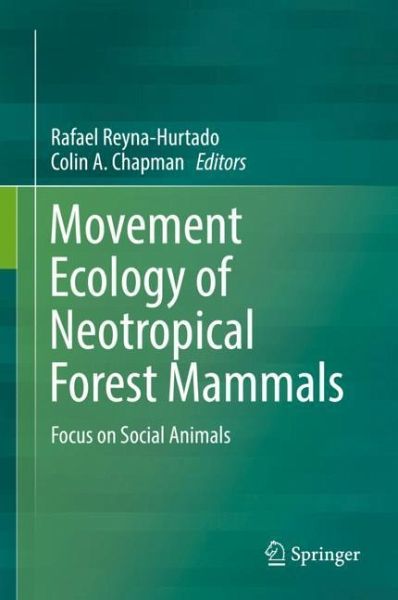
Movement Ecology of Neotropical Forest Mammals
Focus on Social Animals
Herausgegeben: Reyna-Hurtado, Rafael; Chapman, Colin A.

PAYBACK Punkte
57 °P sammeln!
This book brings a unique perspective to animal movement studies because all cases came from tropical environments where the great diversity, either biological and structurally (trees, shrubs, vines, epiphytes), presents the animal with several options to fulfill its live requirements. These conditions have forced the evolution of unique movement patterns and ecological strategies. Movement is an essential process in the life of all organisms. Animals move because they are hungry, thirsty, to avoid being eaten, or because they want to find mates. Understanding the causes and consequences of an...
This book brings a unique perspective to animal movement studies because all cases came from tropical environments where the great diversity, either biological and structurally (trees, shrubs, vines, epiphytes), presents the animal with several options to fulfill its live requirements. These conditions have forced the evolution of unique movement patterns and ecological strategies. Movement is an essential process in the life of all organisms. Animals move because they are hungry, thirsty, to avoid being eaten, or because they want to find mates. Understanding the causes and consequences of animal movement is not an easy task for behavioural ecologists. Many animals are shy, move in secretive ways and are very sensible to human presence, therefore, studying the movements of mammals in tropical environments present logistical and methodological challenges that have recently started to be solved by ecologist around the world. In this book we are compiling a set of extraordinarycases where researchers have used some of the modern technology and the strongest methodological approaches to understand movement patterns in wild tropical mammals. We hope this book will inspire and encourage young researchers to investigate wild mammal´s movements in some of the amazing tropical environments of the world.





